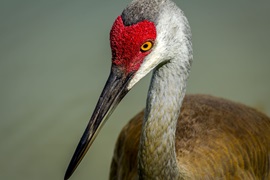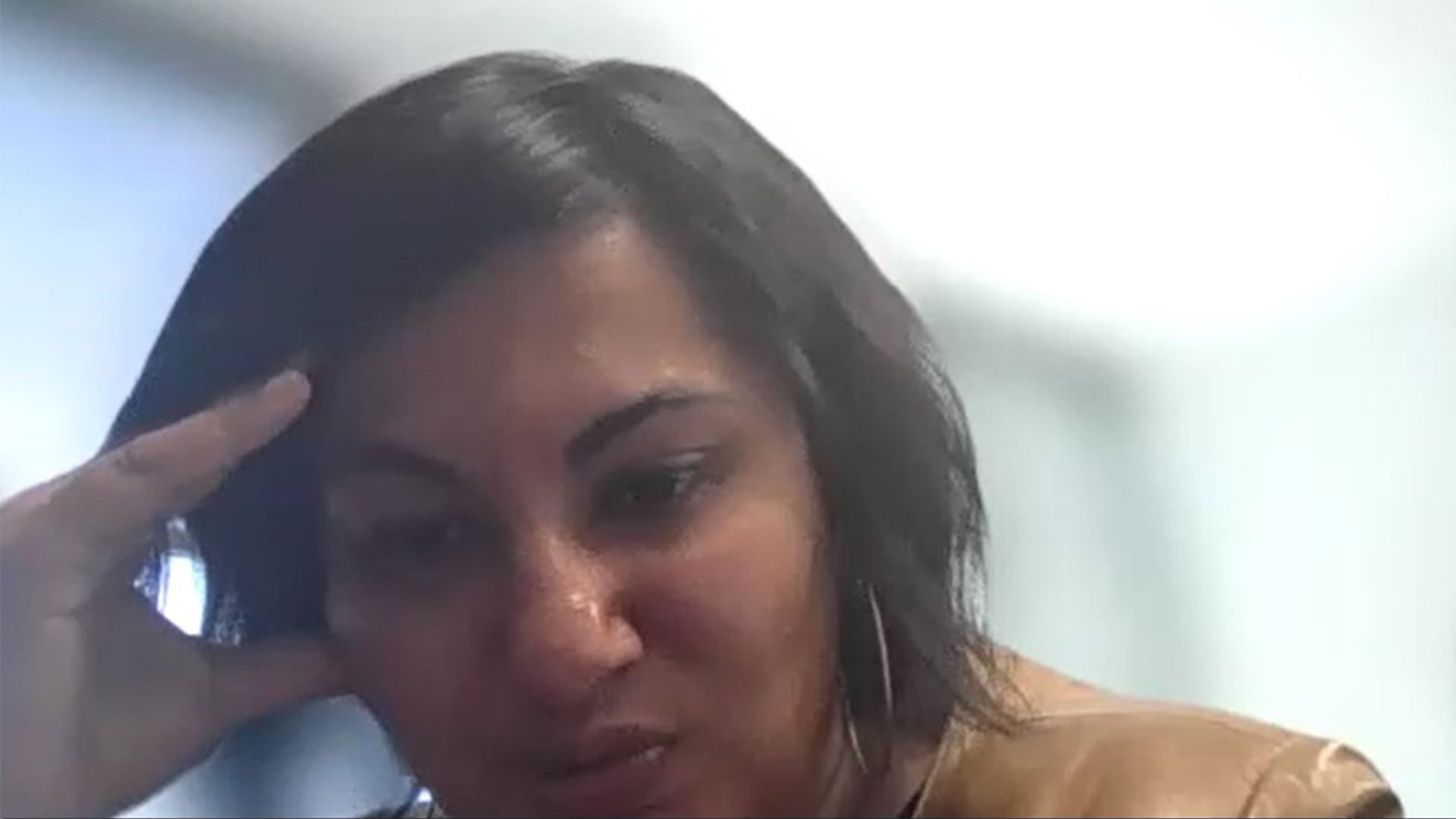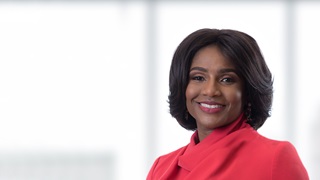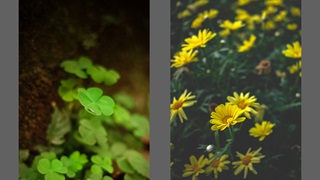
What it is to be a Japanese woman
There's more that could be said but this is all for now | Issue 21 | 2022


Johannesburg director—and chair of Norton Rose Fulbright South Africa—Michelle David, in conversation with Ingeborg Alexander in August 2022.
I am South African and have been South African my whole life. I grew up in Pietermaritzburg in KwaZulu Natal.
We have moved beyond the apartheid regime, but we are stuck with the consequences of it. It’s the reality that we live with. It does shape who you are—your sense of being, sense of self.
That’s the beauty of South Africa—we are an all-encompassing nation. We tend to be more conscious of accepting people, conscious of differences... to the point of being more accepting of those differences. We’re very cognisant of not falling into old habits.
One should never be asked to accept or tolerate diversity, that’s wrong. It makes it seem like it’s something abnormal and that’s not what it is.
We’re a young democracy. It’s kind of odd to have lived in isolation for such a long time and then suddenly be expected to integrate. It’s like a hermit—you’ve lived your whole life alone and then people say, “Okay, so where’s your place in the world?” You’re talking about people who may not have had the opportunity or the means to travel outside of their country; about a country that was on sanctions lists for so many people, a no-entry zone. We’ve lived that history.
Could we do more? Possibly, but’s that’s any country, any human, could you do more? Of course you could.
I come from an Indian family, and my mum always says, generationally, we’ve got to do one generation better. She finished school in standard six, she didn’t do matric, she didn’t do any of those things, neither did my dad, they didn’t have those opportunities.
My dad was a farmer and he was murdered. I was seventeen, going on eighteen, I was in matric doing my exams before university, and my mum had to step in and make things work. My mother was one of those people—and she still is one of those people—it didn’t matter what she had to do to get it across the line, so long as it was legal. That’s who she was. She was an informal trader for years. When my dad passed away, she was a housewife. She was 36. She never sat back and said, oh, my husband’s died, I’ve never worked a day in my life, what do I do with myself?
So I went to university. I started off doing engineering and I just didn’t like it; I couldn’t find my passion. So I stopped doing engineering and I did a Bachelor of Art and then I got married and had a child and while I had my son I did my LLB; I did day school and night school, for my LLB, so that I could progress it as quickly as possible.
I never thought about ‘being a woman’ or ‘being Indian’ or whatever, I just wanted to be the best.
My mother’s loving her life now. She’s a grandmother who lives at home and looks after grandchildren when she feels like it. She’s in her zone.
It took a long time to get her to stop working but she eventually did. My brother and I support her. She’s sorted. She deserves to be sorted.
She’s 63. She stopped working when she was 50, or maybe 55. I must have been four or five years into my job.
She has sisters and they’re very close, so they’re always up and about. She’s also got her mum—my grandmother’s still alive—so they’re always gallivanting somewhere or other.
I don’t think my mum wants for anything.
I’ve been married for twenty years. I’m blessed in that regard. I’ve got a loving husband, my son is 19 and my daughter’s 13, I’ve got four dogs, and if everyone in my house had their way they’d get two more, but sanity has to prevail at some point. In Covid I had six dogs. They were all mine, but two were old so they passed away. But no more, I’m done.
And I have fish; a fish tank, for my daughter; they’re boring and they die (don’t say that out loud but they die); I don’t really bond with fish. But I am very much a dog person. They know how to show love. They soothe you. They soothe the soul.
I’ve got a little Maltese that sleeps in my bed, don’t even ask.
I said to my son the other day, “We have to take down the mirrors in this house”, because clearly he cannot pass a mirror without looking at himself. That’s the reflection of the almost 20-year-olds, right? They’ve got self love down, and some of us should learn from them.
I enjoy cooking for my family. A lot of my time is spent working, and I like it that they come to the kitchen and there is lots of conversation and then lots of laughing and lots of nonsense, and you’ll look down and you’ll find dogs at your feet trying to pick up leftovers; I enjoy it. Of course there’s days where I don’t cook, but what I mean is, it’s just time to settle. That, and boxing. I love boxing.
Can you imagine frustration, how you can take it out on a boxing bag? And stress.
Try it, you’ll love it.
It’s something totally other. I don’t want people there to know what I do for a living, where I work, what’s my position, that is just… I’m a firm believer in death being the equaller, so I try to live my life on that premise, and I have a firm view that you’re not defined by what you do, by your profession or money or the car you drive, all of those things. I firmly believe that you’re defined by what you put out in the world, as in how you treat people. So when it comes to boxing, I don’t see any need for people to know anything about me.
We didn’t have a lot growing up, we didn’t have lots of money, we didn’t have all of those things. And all of those things provide you with a sense of insecurity, because you think that those are the important things when you’re younger. When you’re older you realize it was just a different set of things that you were given... love or, whatever it is.
I have a 72-year-old lady who does boxing with me. This lady, she’s living her best life. She says to me, “Michelle, let’s do gin cocktails.” I don’t even know her, she’s just there, living her life. She’s like, “Listen, when I die I stop living, but before then…’ She wants to go to the theatre, she goes for coffee, she’s doing her thing.
Can you imagine—if she defined herself by her age, she’d be at home doing absolutely nothing. I’m a firm believer in not defining yourself by anything.
I come from a long line of farmers. My dad’s family are farmers. I love it. I like the smell of the earth, I like the birds, I like trees, … I have a need for space and air and land.
Even if I didn’t think about it by myself, my 13-year-old would remind me every day that we are destroying the earth.
I do wonder what we will have left. I don’t know if we do enough. Are we going to be that generation that just goes through it all? But I am very conscious of it. I don’t know if I do enough. I doubt I do enough.
You don’t want your children or their children to be living in a Mad Max world.
It is a fear. But sometimes—sometimes you’re so worried just about the things that you’ve got to worry about, for your own kids, will they find their way?…sometimes you want to think about things that are far into the future, but you don’t.
In this world we have so much façade. What people want is honesty. They want to know what you stand for, actually stand for.
I think you have to be who you are.
I’m Catholic. I converted about 24 years ago when I met my husband.
I come from a home where my dad was Hindu, my mum was Christian, and it was just a constant battle of where we fit in. So I was always of the view that if I found somebody who was strong in their faith—because I had half a faith—then I would bring up my children that way, because I didn’t want that anxiety for them. And my husband is deep-rooted in his faith.
Whoever is holding those gates to heaven must, at least, think about whether you are a good person. I think that’s all we can hope for. Like they say, some religious won’t get through the gates, right, because 'claiming a religion' is not enough. So, I can only hope.
Compassion. Mercy. And forgiveness. Without that, what are we?
I love reading.
I’m going to read my son’s set works. I’ve always done it, since they were little. So that’s my current reading list. It’s Things Fall Apart and Heart of Darkness… I used to read such a lot. I’m a prolific reader. And now I’m down to one book. There’s no doubt in my mind that that’s what’s had to give. But that was conscious, because my friends’ circle is so important. I need them. I need them for sanity, I need them for laughs. My husband and I need them, because you can’t be just two people on an island, you’ll kill each other. So, no, I’ve not given up my friends at all. Definitely the reading.
Both my mother and my father are Indian. I’m the first generation in my family not to speak the language. My dad and my mum speak it but not me, not my brother. My daughter’s learning French and Zulu, so she’s definitely not learning Tamil.
I’ve met my great grandparents, the ones who originally came over from India. I must have been 11 or 12 when my great grandfather passed away. I’m fortunate to have met them—but I must be honest, it also feels a little bit… I’m South African Indian, do you see what I’m saying? I can’t relate to being an Indian from India. I’m very much South African Indian, and South African Indians have their own identity, right?
Sometimes we get caught up in all of the things that are wrong but we forget about the things that are right. If you’re South African you know what that means to be South African, and it’s silly things but, yes, South Africa gets under your skin.
When I look outside, I see Wuthering Heights. Don’t laugh, I do. I see the mist and the trees and sometimes, when I drive to Kwazulu Natal, I see Ireland, I see green grass and mist …my mother always laughs at me... I send them pictures of the mist, and they say “What do we need to look at the mist for?” …and my husband says, “Why do you want to go to Ireland?” “I want to look at the grass.”
It’s the romantic nature coming out.

There's more that could be said but this is all for now | Issue 21 | 2022

'I am black before I’m a woman' | Shauna Clark in conversation with Ingeborg Alexander | Issue 19 | 2021

Meet Noni and Bina, two gardeners—one in the southern, one in the northern hemisphere | Issue 19 | 2021
© Norton Rose Fulbright LLP 2025